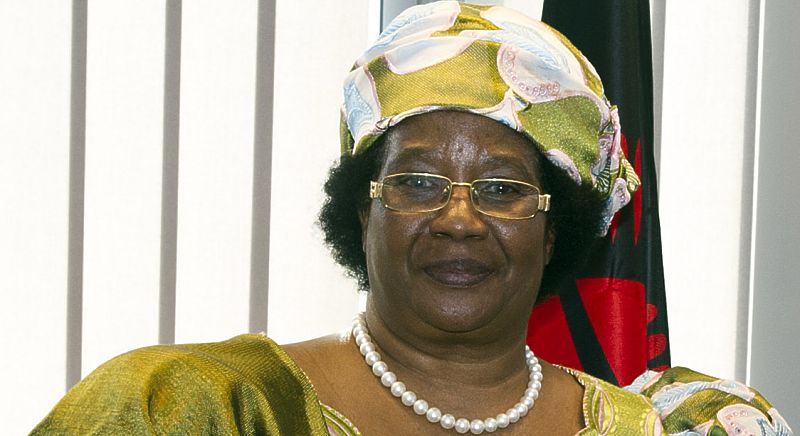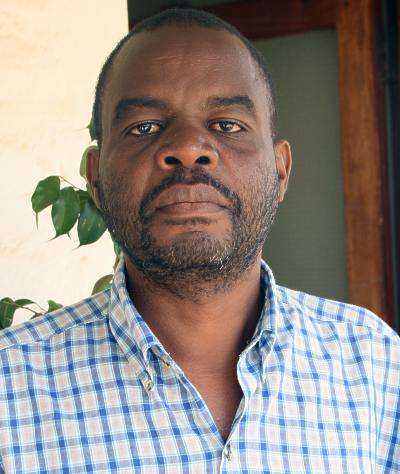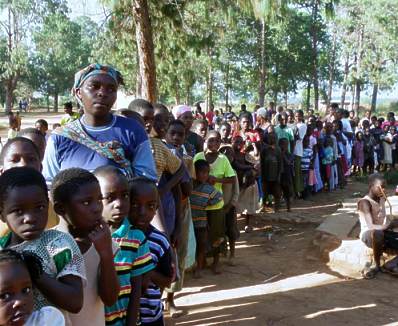
This article was found at the online version of afrol News. The URL and reference to the article is http://www.afrol.com/articles/38385
 Malawi
MalawiEconomy - Development | Politics
"Cutting aid to Malawi over corruption will endanger lives"
 |
Charles Mkula is General Secretary of the Journalists Union of Malawi (JUMA)
|
| © George Ntonya/afrol News |
The European Union (EU) and several other major donors to Malawi have frozen their budget aid to the Southern African country after rampant corruption in government offices was disclosed by journalists organised in Mkula's journalist union JUMA. But this aid makes up 40 percent of the Malawian budget, and among other things goes to finance the country's health and education sector.
Malawians are shaken by the enormous range of the corruption scandal in government offices. "Recent media reports indicate that there is a syndicate of both senior and junior civil servants who have connived to misappropriate large sums of public funds, which have been stashed away in homes, cars, graves as well as being laundered in form of housing properties and vehicles," Mr Mkula sums up.
"An example is the police arrest of an accounts assistant who was caught with US$ 2.7 million. Another is that of a principal accountant, who was arrested with $1,200 in his vehicle boot while trying to remove the money from his Capital Hill office with a further $25,000 found in his house. The Anti Corruption Bureau also arrested two officers with dubious government contract payments amounting to $7 million in goods and services that were not supplied. Police also arrested eight police officers for stealing $164,000," Mr Mkula explains.
But corruption is nothing new at all in Malawi, with the two last presidents of the country being accused of accumulating US$ 300 million and 1.7 million, respectively. So afrol News asks Mr Mkula why Malawians are so upset by the disclosures this time.
"Since 2011, the country has experienced a steep rising cost of living buttressed by high taxes and municipal rates that do not match service delivery, a situation which has exerted extra frustrations against the public service. It is even hard to imagine the increased national budget, whose 40 percent is donor funded," the country's chief journalist points out.
President Banda struggles to take control
Late last week, President Joyce Banda sacked her entire government and asked for international assistance to clean up the mess left by corrupt officials. Ms Banda insisted she had inherited corrupt structures from her predecessor, President Bingu wa Mutharika, who died suddenly early last year.
"President Banda has in my opinion been slow to act after the first cases of corruption began to emerge," Mr Mkulu tells afrol News. "However, it could be argued that she was trying to find her feet in the whole situation, as shown by her unwavering command to set the wheels of justice in motion by ordering the arrests of all suspects involved and the dissolving of her cabinet of ministers, some of whom are alleged to be involved in the plunder," he adds.
Th
 |
Most Malawians depend on foreign aid for health services
|
| © Nabila Kram/MSF/afrol News |
"With the popular belief that the corrupt practices involves top politicians in her cabinet and political party, the Peoples Party (PP), she has to wade carefully since some of those politicians being mentioned are people with a lot of political experience and any move on them can either break or make her political aspirations as well as those of her party," Malawi's chief journalist comments. "She needs to be careful," he adds.
But President Banda "has the powers and means to address corruption in Malawi," he insists, listing a multitude of state organs that enjoy popular confidence. Offers of support have also come from London.
Aid cuts could provoke humanitarian crisis
Shortly after President Banda announced the sacking of her government, two of Malawi's main donors, the EU and Norway, announced they would freeze budget support to the country. This could have devastating effect on the humanitarian situation in Malawi, the poorest country in the Southern African region.
"It is a very unfortunate situation, considering that most of the budget support by the donors is meant to assist in the health, water and sanitation, environment, education and agricultural sectors, with agriculture forming the back bone of the country's economy," Mr Mkula comments.
He adds that a new report from the US agency FEWS has indicated that about 1.6 million people in the country soon may face hunger and starvation due to poor harvests. Further, Mr Mkula warns, "most hospitals do not have adequate drugs, while people are experiencing poor sanitation with poor access to clean and portable water, while a high percentage of the masses remain illiterate."
While the Malawian journalist leader says he understands donors' policies of zero-tolerance for corruption, he now fears that the humanitarian situation will be even worse in Malawi. Mr Mkula points to "the suffering of Malawians" last time aid was cut, under President Mutharika.
"The suspension of development aid to Malawi would largely hinder economic growth and poverty reduction," Mr Mkula warns. He also fears that these economic problems can create further financial and political fuzz in the country, with the opposition already favouring the aid withholding out of opportunistic reasons.
"I do not agree with those who are in favour of the aid withholding," Mr Mkula tells afrol News. That would only be "promoting a de-campaign against the government and paralysing it through inability to perform some of its core functions," he warns. "However, in the long run it will be the common person who will be at the receiving end," he concludes.
This article was found at the online version of afrol News: www.afrol.com |

No hay comentarios:
Publicar un comentario